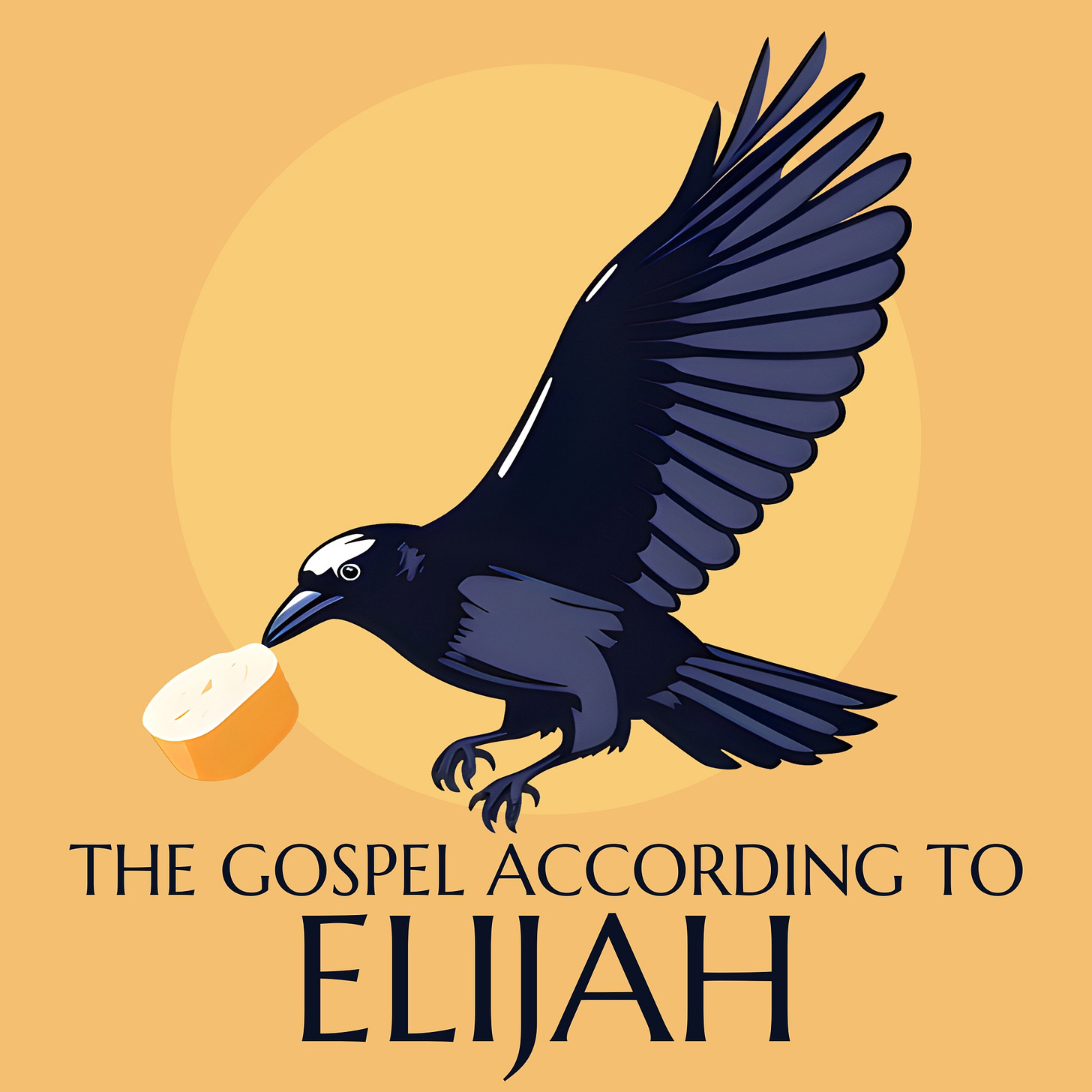1 Kings 19.9-18
I sometimes joke, “I love Jesus; it’s his friends I can’t stand.” Happily however, the communion of saints names the gift of friends we would not have if we had not the Lord Jesus. Because Jesus is not dead and hijacked me into his service, I providentially crossed paths with Alfred Dewayne Brown nearly a decade ago. He has remained a friend to me just as I have continued as a pastor to him.
As I have shared with you before, when he was twenty-five, Dewayne was charged in the murder of a police officer and cashier during a botched robbery of a cash check store in Houston. Upon his arrest, Dewayne had insisted that he’d been at home alone and that his girlfriend, whom he’d called from a landline in his apartment, could verify his alibi. The phone record was never recovered, and the prosecutor threatened Dewayne’s girlfriend with contempt, which meant she’d put her child at risk in the foster care system if she did not revoke her testimony.
Dewayne fit the profile for a convenient scapegoat and an easy conviction.
He’d grown up poor.
He’d dropped out of school in the ninth grade.
His skin was the right color.
So, a Texas doctor ginned up Dewayne’s IQ from sixty-seven, which qualified him as mentally handicapped, to seventy, which qualified him for execution.
Despite any forensic evidence whatsoever or eyewitness corroboration, an all-white jury sentenced Dewayne to death in 2003. He spent the next twelve years in a sixty-square-foot single cell. Dewayne had already been on death row for two years when he met my friend Brian, a fast-talking, wise-cracking white-collar defense attorney in D.C.
Brian’s firm took Dewayne’s appeal pro bono. Neither Brian nor the firm considered the possibility that Dewayne was innocent; that is, not until the initial interview after which Brian walked out of death row and threw up in the parking lot, realizing the likelihood that he would not be able to save an innocent man from death and that he would carry that guilt to his own death.
Brian gave the next decade of his life to freeing Dewayne. The case jeopardized Brian’s career. The time away and the depression almost ruined his marriage. By luck or by providence, Brian discovered that District Attorney Dan Rizzo had hidden the phone record, which corroborated Dewayne’s alibi. He also had a letter sent to Dewayne from a witness, the details of which would’ve cleared Dewayne, but the prosecution never told Dewayne what it said.
Dewayne can’t read.
In other words, Dan Rizzo was guilty of sending Dewayne to his death knowing his innocence from the very beginning. The evidence exonerating Dewayne was discovered in 2013. Dewayne wasn’t released from prison until 2015 when the State of Texas decided not to retry him. Five years later, the Harris County Assistant District Attorney’s office filed charges against their former DA, Dan Rizzo.
I called Dewayne when I saw in the news that the man who had unjustly condemned him would himself face justice.
“What do you make of the news?” I asked him.
“It’s an act of God, man.”
“Did you ever dream the crooked DA get what was coming to him?”
“Sure I did— I knew so. He may seem slow to us, but God’s always at work. And he doesn’t look past wrongdoing neither. I knew justice was coming.”
In the confrontation at Mt. Carmel, the Lord had answered Elijah’s prayer with fire and the Lord’s unfaithful Israel had responded, “Yahweh is indeed God!” But then, they all go back to their homes and resume their idolatrous lives. Meanwhile, Jezebel, the pagan Queen of Ahab, issues a warrant for Elijah’s capture and execution. Despairing over the futility of his call, Elijah forsakes the battlefield because he believes that he’s the only one left in Israel who has remained faithful to Yahweh.
After wandering in the wilderness for forty days, Elijah comes to the Horeb mountains of which Mt. Sinai is the peak. There Elijah finds the cave— not a cave, the cave; that is, the cleft of the rock in which Moses had hid as the Lord passed by him. At the cleft, the Word comes to Elijah and asks a question.
It is rarely good news when the Lord shows up with a question for you.
God speaks and summons. The Lord seldom asks, “Would you consider dropping your nets and coming to follow me?” The God from whom no secret is hid does not often ask questions.
When he does, you’ve been caught in the act:
“Adam, where are you?”
“Cain, why is your face downcast?”
“Elijah, what are you doing here?”
In the context of the plot, you should hear the Lord’s question, “Elijah, what are you doing, here?” As in, “Elijah, why have you left Israel? Why are you so far outside your assigned work area?”
Remember—
The Troubler of Israel has evacuated to the southern-most edge of Judah.
The shepherd has abandoned his flock, having concluded that they are irreparably lost sheep.
Elijah replies to God’s question by responding with a severe accusation against his fellow Israelites. He dismisses them as entirely hopeless in their sins and he casts their idolatry against the backdrop of his own faithfulness. Elijah goes to law with God (never a good idea). “I have been very zealous for the Lord,” Elijah protests, “for the Israelites have forsaken your covenant…I alone am left, and they are seeking my life, to take it away.”
Elijah’s complaint is that God’s people have forsaken God’s covenant with them. And as Elijah suggests, their sin has the character of totality about it. That is, once you break the first commandment and have a god other than God, then killing and lies, greed and cheating and dishonor surely follow.
This is but a reminder that what sets the God of Israel apart from the barren deities of both antiquity and today is that the God of the Bible creates with moral intention.
Baal never told his worshippers how to live in the world; Baal simply did or did not respond to his adherents’s petitions.
As Robert Jenson writes:
[By contrast] “God’s work on creatures is not random but morally purposeful. He creates and redeems us to be this and not that: faithful rather than questing, pious rather than neglectful, communal rather than autonomously individual, chaste rather than liberated, helpful to the fabric of community rather than harmful to it, mutually pleasured rather than covetous.
The Lord does not dispute Elijah’s indictment against the people. He instead instructs Elijah to stand on the mountain before the Lord. Typically, readers treat the first three elements of the theophany in contrast to the fourth. But the wind and quake and fire are not antithetical to the Lord’s presence, they are emanations from it.
As the biblical scholar J.C. Sikkel illustrates it:
“When a king visits one of his cities, his coming is preceded by canon fire, the approach of cavalrymen and mounted police, and a ceremonial procession of high officials. All of this announces that the sovereign is on his way, even though the king himself does not travel with this vanguard. He comes at the end of the procession after his coming has been announced by all this pomp and splendor.”
The wind and the earthquake and the fire herald the king who arrives in a still, small voice.
Just to be clear—
It is a voice that encounters Elijah.
It is not “the sound of sheer silence” as some translations render it.
We know it is a voice that encounters Elijah because the first time God asks Elijah, “What are you doing here?” verse nine says it was the Word of Yahweh who asked the question. After the theophany, the question remains the same, but verse thirteen tells us that this time it was the Voice (same word, qol) that asked God’s question.
This is the voice of the Messenger of Yahweh that had fed and consoled Elijah earlier in the wilderness. This Messenger (malak Yahweh) is both one with Yahweh yet also other than Yahweh. The voice belongs to one who is God but who is simultaneously other than God. In other words— the ancient church fathers saw this clearly— the king whom fire and wind and earthquake herald is the Second Person of the Trinity.
The still small voice belongs to the Son of God who will be Mary’s boy and Pilate’s victim.
“All the Bible is about me,” the Easter Jesus says to the disciples on the way to Emmaus.
Therefore—
To listen to the still small voice is not (as I’ve been exhorted in myriad clergy gatherings) to retreat silently within your self. To listen to the still small voice is not to attempt to discern some ill-defined vagueness.
To listen to the still small voice is to listen to Jesus.
Yet this is no more consolation for us than it was for Elijah, for this still small voice sounds so unlike the Jesus we think we know.
After the fire and the wind and the earthquake have subsided, Jesus speaks of a storm of judgment coming to God’s people.
A few years ago, Dewayne and Brian gave a presentation to a group of law students at George Mason University. I went with them to sit with Dewayne while his attorney talked shop with future practitioners. Having listened to him to tell his story to the students, I once again marveled at his expressions of forgiveness over the wrongs done to him by crooked cops and ambitious lawyers, a prejudiced system, and an indifferent society.
“I’ve forgiven all that,” Dewayne told me in the same sort of classroom where lawyers who had turned a blind eye to his innocence were once trained into a supposedly blind justice system.
“How is that possible?”
He shrugged his broad shoulders and smiled his child’s smile.
“I can let go of what they done to me because I know God doesn’t look past it.”
The theologian Miroslav Volf now teaches at Yale. He grew up in the former Yugoslavia where, as a young pastor, Soviet interrogators tortured him. In his seminal book, Exclusion and Embrace, he attempts to recover the coherence of the category of God’s wrath.
He writes:
“A non-indignant God would be an accomplice in injustice, deception, and violence…My belief in divine vengeance will be unpopular with many Christians, especially theologians in the West. To the person who is inclined to dismiss it, I suggest imagining that you are delivering a lecture in a war zone. Among your listeners are people whose cities and villages have been first plundered, then burned and leveled to the ground, whose daughters and sisters have been raped, whose fathers and brothers have had their throats slit.
The topic of the lecture: a Christian attitude toward violence.
The thesis: we should not retaliate since God is perfect non-coercive love. Soon you would discover that it takes the quiet of a suburban home for the birth of the thesis that human nonviolence corresponds to God’s refusal to judge.
In a scorched land, soaked in the blood of the innocent, it will invariably die. And as one watches it die, one will do well to reflect about many other pleasant captivities of the liberal mind."
In Elijah’s contest on Mt. Carmel, the prophets of Baal are so impotent they can make the barren deities of Canaan appear as harmless trivialities. But, for example, in addition to Baal, Jezebel and her prophets worshipped the Canaanite god Moloch, to whom devotees sacrificed children. The reason God’s law prohibits pork is because when a human baby was not available for sacrifice Canaanites would offer a baby pig in its place; therefore, the Torah forbids pork in order to prevent any resemblance between Yahweh and Moloch.
When Elijah charges God’s people with forsaking the covenant, he’s accusing them of crimes more serious than praying for rain by the wrong name. When we forsake the covenant, there are consequences more severe than how we spend our Sunday mornings. For instance, in post-Christian Canada, euthanasia is now a leading cause of death. In a doom-scrolling culture, it is not hard to supply other exhibits of evidence.
The wrath of God is not arbitrary.
It is righteous altogether.
That the Voice who encounters the recalcitrant Elijah belongs to Jesus makes it all the more critical we pay attention to the commands the still small utterance issues.
In our own sin and idolatry we tend to strip the signs (e.g., fire..wind..) from the words, but the both of them together make up the theophany.
Without the Word which follows, the signs convey nothing for they leave Elijah unchanged. After all, when the still small Voice asks Elijah the same question the Word had earlier inquired of him, the prophet offers the very same answer, “The Israelites have forsaken your covenant…I alone am left…”
Of course, even Elijah knows that Obadiah has hidden away a hundred prophets faithful to the Lord. Elijah is so convinced of Israel’s ungodliness that he’s exaggerating the desolation of their situation. The Lord opts not to indulge Elijah’s despair and defeatism. “Go!” the Voice that is Jesus commands him. And what follows from the command to depart is the Lord’s explanation of the theophany.
Jesus issues three commands:
“You shall anoint Hazael to be king over Syria.”
“You shall anoint Jehu to be king over Israel.”
“You shall anoint Elisha to be prophet in your place.”
Jesus commands three anointings. The anointings are the explanation to the theophany. The men anointed in the name of Yahweh will be the rods with which Yahweh will chastise and punish his Israel. They will be instruments of God’s wrath.
Notice—
Like the signs that heralded the still small Voice, the judgments Jesus initiates are three-fold.
Hazael and Jehu and Elisha.
Wind and earthquake and fire.
Each of the latter corresponds with one of the former.
Sitting in the classroom at the law school, Dewayne repeated himself, “I can let go of what they done to me because I know God doesn’t look past it.”
I looked at him, unsure of what he meant. He nodded, understanding I didn’t understand.
“I can let go of all that because I know vengeance belongs to the Lord.”
He must’ve seen me balk at his use of the brute, old fashioned word.
“What— you’re a preacher; don’t tell me you don’t believe in God’s vengeance? His justice?”
“I may be a preacher,” I said, “But I’m also white and well-off. When the world’s rigged in your favor, you don’t have much need for God or his vengeance.”
He laughed.
And then he leaned towards me, suddenly and boldly serious.
“I can forgive all of it,” Dewayne said, “Because I know God damns every bit of it.”
Hazael and Jehu and Elisha.
Wind and earthquake and fire.
Notice—
If each of the three anointings corresponds to one of the preceding signs, then we’re missing still a fourth judgment.
Wind, earthquake, fire..
But the passage speaks not of a judgment that corresponds to the still small Voice. That judgment comes when the Voice takes flesh.
“On him,” the prophet Isaiah foresaw, “the Lord has laid the iniquity of us all.”
Of course, it’s true that the Voice arrives on the scene as the Friend of Sinners who announces the pardon of God. Yes, the Voice pronounces the forgiveness of sin. Certainly, the Voice eats and drinks with sinners and teaches his followers likewise to forgive sin.
But—
Jesus forgives sinners precisely because he’s going to die for them.
The covenant with its commandments is not wrong. The law is holy, righteous, and good. The Lord does not look past our impunity. The crucifixion is not an injustice we visit upon Jesus. The crucifixion is the justice God visits upon us.
In himself.
In the human-who-is-God.
The cross is a true damnation.
I realize a word like damnation tightens our collective sphincters, but as Christ’s death is the presupposition to his resurrection, God’s wrath is the dialectical presupposition to reconciliation.
“The Lord has laid on him the iniquity of us all.”
Again, notice—
The Lord lays on him not the punishment due us all.
The Lord lays on him the iniquity of every last one of us.
That is, our sins.
The still small Voice is not a substitute for us.
The still small Voice is our sinner.
As Martin Luther lectured:
“Unless Christ was our sinner, we ourselves must be; but since through him we are not sinners, it follows that he was a sinner and had to be. If it were true that Christ is innocent and does not carry our sins, then we carry them and shall be damned in them.”
But how?
How are our sins Christ’s own sins?
Luther, following the Epistle to the Galatians, answers:
“Our sins are Christ’s not by means of some transcendent, super-historical transaction, in which Christ simply ‘regards’ our sins as his but by bearing our actual sins. Our sins are Christ’s by reason of his committing them.”
But how has Christ committed our sins?
By “his intentional self-incrimination.”
The Friend of Sinners sounds like a sentimental slogan.
But really, it means the still small Voice makes himself a collaborator to all our crimes.
He is the accessory to every bent cop and crooked DA. He is the partner in crime to every Putin. He is the accomplice to the spouse who cheated on you, the friend who betrayed you, the parent who abused you.
He is everything you’ve done. And left undone. Just so, the law’s accusation against him— and in him, you too— was just.
As Luther says:
The Gospel’s declaration“Behold, the lamb of God who takes away the sins of the world,” should be heard as Jesus himself declaring, “I have committed the sins of the whole world.”
He bears them all in his body— the body which, on the third day, the women come with spices to anoint.
Wind and earthquake and fire and voice.
Hazael and Jehu and Elisha and Jesus.
And there will not be another.
God has damned it all.
We were still sitting in the classroom at the law school.
A momentary silence had settled over us.
And then Dewayne said to me, “I don’t just forgive it. I feel bad for some of them who did me so wrong.”
“Feel bad? Why?”
“Well, I figure…their sins were big ones. And how they saw themselves and how they put themselves out to the world— it was all wrapped up in those sins. That means huge parts of themselves are dead and buried with Jesus. I feel bad for them. It’s got to be hard to go on in life with huge gaps in your story already in the grave.”
Your sins are forgiven.
They are.
But they are also a part of the Story you call You.
Which means, you’ve got holes in you that need to be filled.
So come to the table.
Jesus will give you himself to plug the holes.



















Share this post